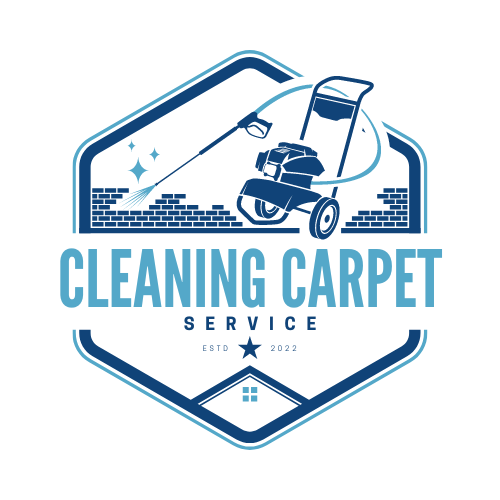
The job market in Singapore is highly competitive and constantly evolving. With a population of over 5.6 million people and a thriving economy, there are numerous opportunities available across various industries. However, factors such as technological advancements, globalization, and changing market demands have also led to job market fluctuations.
One of the key factors affecting the job market in Singapore is the rapid advancement of technology. Automation and artificial intelligence have led to the displacement of certain jobs, while creating new opportunities in emerging industries. Additionally, globalization has increased competition from foreign talent, making it crucial for job seekers to stay competitive and continuously upgrade their skills.
In such a dynamic job market, it is important for individuals to stay ahead of the competition. This can be achieved through continuous learning, networking, and building a strong personal brand. By understanding the current job market trends and adapting accordingly, individuals can increase their chances of securing their desired job.
The Importance of Building a Strong Professional Network
In today’s job market, having a strong professional network is essential for career growth and success. A professional network consists of individuals who can provide support, advice, and potential job opportunities. Here are some benefits of having a strong professional network:
1. Job Opportunities: Many job openings are not advertised publicly and are filled through referrals or recommendations. By having a strong network, you increase your chances of hearing about these hidden job opportunities and getting referred by someone within your network.
2. Knowledge Sharing: Networking allows you to connect with professionals from different industries and backgrounds. This provides an opportunity to learn from their experiences, gain insights into industry trends, and stay updated on the latest developments.
3. Support and Mentoring: A strong professional network can provide emotional support during challenging times and offer guidance on career decisions. Mentors within your network can provide valuable advice based on their own experiences and help you navigate your career path.
Building and maintaining a professional network requires effort and consistency. Here are some tips to help you build and maintain a strong network:
1. Attend Networking Events: Singapore offers a wide range of networking events, conferences, and seminars where professionals from various industries gather. Attend these events to meet new people, exchange business cards, and build connections.
2. Utilize Online Platforms: Social media platforms like LinkedIn provide a convenient way to connect with professionals in your industry. Join relevant groups, participate in discussions, and reach out to individuals who share similar interests or work in companies you are interested in.
3. Offer Value: Networking is not just about what you can gain, but also what you can offer. Be willing to help others by sharing your knowledge, making introductions, or providing support. This will strengthen your relationships and make others more likely to reciprocate.
Crafting a Winning Resume and Cover Letter: Tips and Tricks
A well-crafted resume and cover letter are essential tools for job seekers to make a strong first impression on potential employers. Here are some tips for writing an effective resume and cover letter:
1. Tailor Your Resume: Customize your resume for each job application by highlighting relevant skills, experiences, and achievements. Use keywords from the job description to demonstrate that you are a good fit for the role.
2. Keep it Concise: Employers receive numerous resumes for each job opening, so it is important to keep your resume concise and easy to read. Limit your resume to one or two pages and use bullet points to highlight key information.
3. Showcase Achievements: Instead of simply listing job responsibilities, focus on showcasing your achievements and the impact you made in previous roles. Quantify your accomplishments whenever possible to provide concrete evidence of your skills and abilities.
When it comes to cover letters, here are some tips to make them stand out:
1. Personalize Your Cover Letter: Address the cover letter to a specific person if possible, and mention why you are interested in the company and the role. Show that you have done your research and understand the company’s values and goals.
2. Highlight Relevant Skills: Use the cover letter to highlight specific skills and experiences that make you a strong candidate for the position. Provide examples of how your skills align with the requirements of the job.
3. Keep it Professional: Use a professional tone and language in your cover letter. Proofread it carefully to avoid any grammatical or spelling errors.
Common mistakes to avoid when writing a resume and cover letter include:
1. Including Irrelevant Information: Only include information that is relevant to the job you are applying for. Avoid including personal details, such as marital status or hobbies, unless they are directly related to the role.
2. Using Generic Templates: Avoid using generic resume templates that do not stand out. Instead, create a visually appealing and unique resume that reflects your personal brand.
3. Neglecting Proofreading: Spelling and grammatical errors can create a negative impression on potential employers. Always proofread your resume and cover letter multiple times before submitting them.
Navigating the Interview Process: From Preparation to Follow-Up
The interview process is a crucial step in securing a job. It allows employers to assess your skills, qualifications, and fit for the company culture. Here are some tips to help you navigate the interview process successfully:
1. Research the Company: Before the interview, research the company thoroughly. Understand its mission, values, products or services, and recent news or developments. This will demonstrate your interest in the company and help you answer questions more effectively.
2. Prepare Answers to Common Questions: Anticipate common interview questions and prepare thoughtful answers in advance. Practice answering these questions out loud to build confidence and ensure clarity in your responses.
3. Dress Professionally: Dress appropriately for the interview, taking into consideration the company’s dress code. It is better to be slightly overdressed than underdressed. Pay attention to grooming and personal hygiene as well.
During the interview, remember to:
1. Listen Carefully: Pay attention to the interviewer’s questions and listen actively. Take a moment to gather your thoughts before answering and provide concise and relevant responses.
2. Ask Questions: Prepare a list of thoughtful questions to ask the interviewer. This shows your interest in the role and allows you to gather more information about the company and the position.
3. Show Enthusiasm: Demonstrate your enthusiasm for the role and the company throughout the interview. Smile, maintain eye contact, and engage in positive body language.
After the interview, it is important to follow up with a thank-you note or email within 24 hours. Express your gratitude for the opportunity to interview and reiterate your interest in the position. This small gesture can leave a positive impression on the interviewer and set you apart from other candidates.
Understanding the Role of Social Media in Job Hunting
Social media has become an integral part of our lives, and it also plays a significant role in job hunting. Here are some ways social media can help in job hunting:
1. Building Your Personal Brand: Social media platforms like LinkedIn allow you to showcase your skills, experiences, and achievements to potential employers. By regularly updating your profile, sharing relevant content, and engaging with others in your industry, you can build a strong personal brand that attracts job opportunities.
2. Networking: Social media platforms provide an opportunity to connect with professionals in your industry or companies you are interested in. Engage in discussions, join relevant groups, and reach out to individuals for informational interviews or mentorship opportunities.
3. Researching Companies: Social media platforms allow you to gain insights into companies by following their pages or profiles. This can help you understand their culture, values, and recent developments, which can be useful during interviews or when tailoring your resume and cover letter.
While social media can be a powerful tool in job hunting, it is important to use it effectively and avoid common mistakes:
1. Inappropriate Content: Ensure that your social media profiles are professional and free from any inappropriate or controversial content. Employers often conduct online searches on candidates, so it is important to maintain a positive online presence.
2. Lack of Privacy Settings: Review your privacy settings on social media platforms to control who can view your posts and personal information. It is important to strike a balance between showcasing your professional achievements and maintaining your privacy.
3. Over-reliance on Social Media: While social media can be a valuable tool, it should not be the sole focus of your job search. Traditional methods such as networking events, job boards, and recruitment agencies should also be utilized to maximize your chances of finding the right job.
The Dos and Don’ts of Salary Negotiation
Salary negotiation is an important part of the job search process, as it determines your earning potential and long-term financial stability. Here are some dos and don’ts of salary negotiation:
Dos:
1. Research Market Rates: Before entering into salary negotiations, research the market rates for similar roles in your industry and location. This will provide you with a benchmark to negotiate from and ensure that you are asking for a fair salary.
2. Highlight Your Value: During negotiations, emphasize the value you bring to the company and how your skills and experiences align with the requirements of the role. Provide examples of how you have made significant contributions in previous positions.
3. Be Flexible: While it is important to have a target salary in mind, be open to negotiation and consider other factors such as benefits, bonuses, or opportunities for growth within the company.
Don’ts:
1. Disclose Your Current Salary: Avoid disclosing your current salary during salary negotiations, as it may limit your ability to negotiate a higher salary. Instead, focus on the value you bring to the company and the market rates for the role.
2. Accept the First Offer: It is common for employers to make an initial offer that is lower than what they are willing to pay. Don’t be afraid to negotiate and counteroffer, keeping in mind the research you have done on market rates.
3. Burn Bridges: Even if negotiations do not result in the desired outcome, it is important to maintain a professional and positive attitude. Thank the employer for their time and consideration, and express your continued interest in the company.
Building a Personal Brand: The Key to Standing Out in a Crowded Job Market
In a competitive job market, building a strong personal brand can help you stand out from other candidates and attract job opportunities. Your personal brand is a combination of your skills, experiences, values, and reputation. Here are some tips for building a personal brand:
1. Define Your Unique Selling Proposition: Identify what sets you apart from others in your industry. Determine your unique skills, experiences, or perspectives that make you valuable to potential employers.
2. Create an Online Presence: Establish a strong online presence through platforms like LinkedIn, personal websites, or professional blogs. Regularly update your profiles with relevant content, showcase your achievements, and engage with others in your industry.
3. Network Strategically: Build relationships with professionals in your industry or companies you are interested in. Attend networking events, join industry associations, and participate in online discussions to expand your network.
Examples of successful personal branding in Singapore include:
1. Tan Min-Li: Tan Min-Li is a prominent lawyer and managing partner at one of Singapore’s leading law firms. She has built a strong personal brand through her expertise in corporate law and her involvement in various community initiatives.
2. Joel Neoh: Joel Neoh is a successful entrepreneur and founder of several startups in Singapore. He has built a personal brand as a thought leader in the startup ecosystem, sharing his experiences and insights through speaking engagements and social media.
3. Anita Kapoor: Anita Kapoor is a well-known television presenter and host in Singapore. She has built a personal brand as a cultural ambassador, showcasing the diversity and richness of Singapore’s heritage through her work.
Upskilling and Reskilling: Adapting to the Changing Job Landscape
In today’s rapidly changing job landscape, upskilling and reskilling are essential for staying competitive and relevant. Upskilling refers to acquiring new skills or enhancing existing ones, while reskilling involves learning new skills for a different role or industry. Here are some reasons why upskilling and reskilling are important:
1. Adaptability: Technology and market demands are constantly evolving, leading to the creation of new jobs and the obsolescence of others. By upskilling and reskilling, you can adapt to these changes and remain employable.
2. Career Growth: Acquiring new skills can open up opportunities for career advancement or transition into new roles or industries. It demonstrates your commitment to continuous learning and professional development.
3. Increased Employability: Employers value candidates who are proactive in acquiring new skills. By upskilling or reskilling, you increase your chances of securing job opportunities and standing out from other candidates.
Popular skills in demand in Singapore include:
1. Data Analysis: With the increasing availability of data, companies are seeking professionals who can analyze and interpret data to drive business decisions.
2. Digital Marketing: As businesses shift towards online platforms, digital marketing skills such as search engine optimization (SEO), social media marketing, and content creation are in high demand.
3. Cybersecurity: With the rise in cyber threats, there is a growing need for professionals who can protect sensitive information and ensure the security of digital systems.
There are various ways to upskill and reskill, including:
1. Online Courses: Platforms like Coursera, Udemy, and LinkedIn Learning offer a wide range of online courses on various topics. These courses allow you to learn at your own pace and acquire new skills from the comfort of your home.
2. Professional Certifications: Many industries have professional certifications that validate your skills and knowledge. Pursuing these certifications can enhance your credibility and increase your chances of securing job opportunities.
3. Industry Associations and Workshops: Joining industry associations or attending workshops and seminars can provide opportunities for networking, learning from industry experts, and staying updated on the latest trends and developments.
The Role of Recruitment Agencies in Finding Your Dream Job
Recruitment agencies play a significant role in connecting job seekers with potential employers. Here are some benefits of using recruitment agencies:
1. Access to Hidden Job Opportunities: Recruitment agencies often have access to job openings that are not advertised publicly. They have established relationships with companies and can recommend candidates directly to hiring managers.
2. Expertise and Guidance: Recruitment agencies have a deep understanding of the job market and industry trends. They can provide guidance on resume writing, interview preparation, and salary negotiation, increasing your chances of success.
3. Time-saving: Job hunting can be a time-consuming process, especially when you are actively searching for opportunities. Recruitment agencies can save you time by matching your skills and qualifications with suitable job openings.
When choosing a recruitment agency, it is important to consider several factors. Firstly, it is crucial to research the agency’s reputation and track record. Reading reviews and testimonials from both clients and candidates can provide valuable insights into the agency’s performance and reliability. Additionally, considering the agency’s specialization and expertise in the desired industry or job function is essential. A recruitment agency that understands the specific requirements and challenges of a particular field can better match candidates with suitable positions. Furthermore, it is important to assess the agency’s communication and responsiveness. A reliable agency should have clear and prompt communication channels, keeping both clients and candidates informed throughout the recruitment process. Lastly, considering the agency’s fees and terms of service is necessary to ensure that their services align with the budget and requirements of the hiring company. Overall, a thorough evaluation of these factors can help in selecting a recruitment agency that best meets the organization’s needs.




